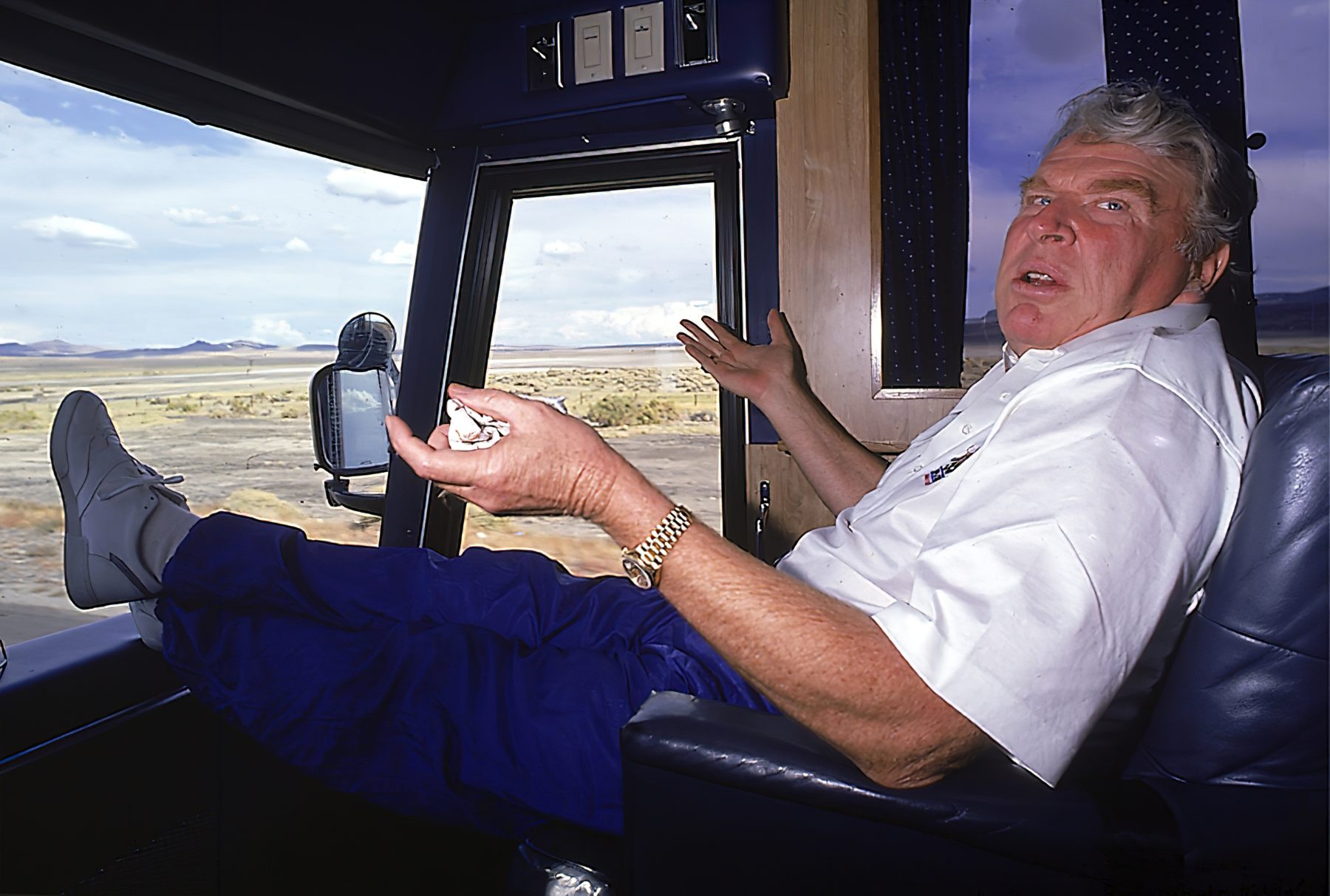GoEuro Touts Growth in Ground Transport But Sees No Profit in Sight

Skift Take
Five years ago this summer, GoEuro debuted to stand out from most established travel companies by showing consumers rail, intercity coach, and flights side-by-side.
Back then no one predicted that the concept was promising enough for the Berlin-based company to eventually raise $145 million from top-tier venture capital firms.
To scale, GoEuro faced a classic chicken-or-egg problem. Suppliers wouldn't bother to work with it unless it had customers. Customers wouldn't use it unless it had tickets from big companies on popular routes.
GoEuro addressed the issue by listing offers and encouraged users to click out to suppliers for booking. The user experience was poor for customers, however, especially on mobile devices — which many rail and bus operators weren't optimized to handle.
So the company pivoted away from metasearch, or price-comparison. Since 2016, GoEuro has been primarily a travel agency when it comes to rail and bus bookings. Today nearly all of its rail bookings and most of its bus bookings are tapped from supply directly from transportation companies.
Investors liked the model. GoEuro has raised $145 million (€150 million) from top-tier venture firms like Silver Lake, Kleiner Perkins Caufield & Byers, Battery, and Goldman Sachs.
GoEuro's fundraising prowess is rare among travel startups in Europe. Only a few companies have raised more, including BlaBlaCar, a carpooling platform that has raised about $335 million, Skyscanner, a flight-comparison company that raised $197 million before being bought by Ctrip, and GetYourGuide, a tours booking agency that has raised $175.5 million.
GoEuro used some of the money to buy traffic and to hire business development help to sign up transportation companies. Those efforts further helped to address the chicken-and-egg problem of creating a vibrant travel marketplace.
GoEuro has grown in several ways since October 2016, when it raised its most recent investment.
Today GoEuro has about 20 million users per month, where a "user" is defined as "a visitor who interacts with the product." That's double the user count from spring 2017.
As of this month, the company said it offers a full product in 15 countries, up from a dozen in October 2016.
Profit Search
GoEuro declined to disclose in an interview Tuesday any metrics on revenue growth.
The company did confirm it is not profitable in any of its markets — a situation it chalks up to being in a phase that requires heavy investment.
Rail operators typically keep commission rates under 10 percent, and more typically closer to 5 percent. That level is significantly below the cut distributors can get from selling many other types of travel, such as hotels, alternative lodging, or activities, though it is generally competitive, or often better, than commissions on selling flights.
Can GoEuro build a business on bus and rail bookings alone? "Yes," said Naren Shaam, the 36-year-old founder and CEO in an interview on Tuesday. "Overall and over time, yes."
Shaam said that a key was adapting GoEuro's products to the specific business cases of so-called multi-modal travel that are different from, say, hotel bookings.
Simply selling transportation tickets may not be enough, however. GoEuro and similar companies need to offer end-to-end services from accurate timetables to updates on delays and platform changes.
GoEuro primarily charges suppliers a commission that varies by the size of the supplier and volume. But the company has been experimenting with charging booking fees to consumers.
When it comes to airfares, GoEuro has long sold most of its flights via an affiliate relationship with China-owned price-comparison site Skyscanner.
In some of our test searches — such as for a recent flight on Transavia between Paris and Amsterdam — we've seen GoEuro act as the online agency fulfilling the booking on its own rather than handing off customers. In our tests, it charged a booking fee, which was 4 percent.
Shaam confirmed that the eventual goal is to become an online agency for most flights sales.
The company currently earns some revenue for a pop-under ad for accommodation search with Booking.com via GoEuro's desktop homepage. However, Shaam said the revenue was not significant.
In the past, the site referred users to Airbnb. When asked about that, Shaam said the company is focusing on its Booking.com relationship right now.
Marketing Conundrum
GoEuro spends tens of millions of euros a year on buying traffic with paid ads on search engines Google, Bing, Yandex, and Baidu.
No company wants to have to pay to acquire the same customer twice. So the startup, like other startups and mature companies, needs to build more direct and repeat business. The company declined to share metrics.
"You have much higher frequency use of inter-city rail and bus," said Shaam, anticipating repeat sales.
The company has explored more cost-effective supplements to search engine marketing.
In fall 2016, Shaam had discussed the possibility of brand advertising. This past winter the company sought to hire a marketer who, according to the job description, could help with co-branding efforts or arranging for deals to have GoEuro installed by manufacturers of devices or vehicles.
The company has explored other revenue streams.
After the fundraising, GoEuro built a business-to-business service, where it offers its inventory to third parties via an API (application programming interface), or a method used for sharing data).
In 2017, it began powering search results on Qunar, the sister travel brand of China-based online travel giant Ctrip.
The company made a big deal about the move last summer. But it has not signed up any other providers to the service. Shaam said Tuesday that the company was choosing to focus on its consumer offerings.
Another change from a while ago was that GoEuro stopped offering car rentals, as consumers didn't think of that in the same type of search they were doing for other transport.
Tech Enhancement
GoEuro used some of the money it raised in fall 2016 for a project to improve the company's engineering.
The company used to have a monolithic database with tens of thousands of lines of code, including provider, search and booking data — which made it difficult to ship improvements.
Around the start of 2017, the company began a shift to continuous integration, delivery, and deployment.
"Now we've essentially split that up, and we ship changes to product 500 to 600 deployments a week," Shaam said. "It is probably the most important investment as a company we've made, and it will enable us to move much faster at product development."
Out of its 280 employees, about 150 are engineers, according to public statements.
On the marketing side, things may not have been as serene or optimistic in the past two years.
At GoEuro, like at many rapidly growing companies, the company has restructured as it has grown. Since the spring of 2017, it has gone from 200 to 280 workers. A look at job listings relative to headcount suggested that there has been some employee churn. Glassdoor, a website where workers review companies anonymously, has a notable number of reviews from workers criticizing the management's skills.
Customer Focus
To stay customer-focused, the company has weekly all-staff meetings where a customer service story is shared. Each employee also receives €200 ($233) to travel using the GoEuro service and report back on how easy or poor the experience was.
It may seem like a cliche to be customer-focused, but mobile travel is a knotty problem, especially when products and populations vary across dozens of countries.
For example, if there are 16 fares for, say, an Italian train, GoEuro offers you all 16 and doesn't provide much guidance on how to choose one. Italians used to shopping from 16 fares may trust GoEuro if they see all the options, but a foreigner visiting may be put off by a bulging array of options.
Customer-centricity also applies to tech development. GoEuro has the customer service team report into the product unit, rather than operations.
Factors Holding Back Fixes
The industry has often described GoEuro as offering multi-modal search, or a mix of transport, such as rail plus bus, in a single itinerary. But technically GoEuro has only been a travel search service that has fetched rail, bus, and air options in a comparison of bookable schedules.
Yet GoEuro is currently testing multi-part trips with mixed modes of transport in its search results. Shaam didn't say when these bundled products might go on sale in wide release.
The company does not seem to have plans to expand beyond transportation. After a consumer buys a way to get to the destination, GoEuro surfaces an ad for lodging from companies like Booking.com or for activities from services like GetYourGuide.
Another issue weighing heavily on GoEuro is legacy regulations in Europe. To favor railway companies, rules often require that a customer use a single provider when buying a multi-country train journey. So, if a consumer uses GoEuro to look for tickets for a rail trip between, say, Paris, France, and Athens, Greece, and that passes through four nations, the company might not be able to display results because it can't sell the tickets. But GoEuro hopes to come up with a workaround.
Outdated computing capacity problems in the rail and coach bus industries are another issue. Like other travel companies, GoEuro effectively pays a toll to be able to retrieve results from rail company computing systems. If it runs too many searches, its costs skyrocket and its systems tend to slow down.
The so-called look-to-book ratio handicaps the company, making it not cost-effective to offer searches for alternative points of departure and arrival within given radiuses.
As a result, a route between Potsdam to Heidelburg, say, may turn up less desirable options than running a search between Berlin, which is near Potsdam, and Heidelberg. But the consumer must know that and do separate radius searches through trial and error to see the results.
It's up to GoEuro to come up with creative solutions to these problems, which go well beyond aggregating mobile demand.
Potential Rivals and Acquirers
As GoEuro looks to expand, it may face competition.
A few years ago, The Trainline, Britain’s largest digital rail-booking operator for UK train trips, was snapped up by venture capital firm KKR — which then, in turn, helped fund Trainline’s acquisition of its cross-channel rival Capitaine Train (Captain Train), a Parisian marketplace for inter-city European rail tickets. The combined company continues to grow quickly, processing more than $3 billion in tickets a year.
Rome2Rio, an Australia-based travel startup that lets consumers compare rail, bus, and other transport options worldwide, claims that July was its biggest sales month to date.
Rome2Rio has 13 million monthly visitors. It has an information-first approach, in which it offers details about travel options whether or not the transport can be bought on Rome2rio. In contrast, GoEuro has taken a booking-first approach of almost always only showing options that are bookable through it.
While known as information-first, Rome2rio has been expanding its ticketing capacity. It said that a deal with rail aggregator SilverRail in 2016 has brought on major European ticketing partners Deutsche Bahn, Renfe, and Rail Europe. Rome2Rio also has a lead globally, offering data from about 5,000 suppliers.
GoEuro may also face competition from bus aggregators such as BusBud, BusRadar, CheckMyBus, and Wanderu, and airfare aggregators like the fast-growing Kiwi.com, which offers mixed carrier itineraries.
Other players may enter the market. This past spring Skyscanner began to offer a train- ticket-booking feature that lets users of its mobile apps book British train journeys. GoEuro is not powering that despite years of having an affiliate relationship on flights, and it may face competition from the offer if Skyscanner and Ctrip expand it.
Skyscanner is getting the data from its sister brand Trip.com, which currently offers rail ticketing for China, Germany, the UK, and South Korea. Parent company Ctrip also is a minority investor in MakeMyTrip, India's largest online travel agency, which has a substantial rail and bus booking offering.
In 2017, Expedia spent $148 million to buy SilverRail, a distribution system for rail companies. Last year, Expedia began selling rail tickets for major British intercity routes.
TripAdvisor has not offered rail or bus booking, but if it entered the space, its signature user-generated reviews model could help travelers get a sense of the quality of service that they're booking. GoEuro doesn't offer user ratings.
Google currently offers transit timetables for many municipalities worldwide. If it debuted a price-comparison service, it would obviously be influential.
To thrive, GoEuro may have to acquire or be acquired. Investment from Softbank Vision fund, which has supercharged the growth of Indian hotel budget booking company Oyo, would be dramatic.
A less dramatic move would be a complementary merger with French carpooling service BlaBlaCar. GoEuro already provides BlaBlaCar rides as an option, where available, in its results under its bus tab.
Overall, the opportunity seems large. Most rail and bus inventory remains offline worldwide. In Europe, about 70 percent of all transportation tickets for rail and bus are sold at kiosks or ticket offices, Shaam estimated.
Shaam — whom Skift named a top Tastemaker of European Travel in 2017 — has a dream that someday Europeans will be able to take it for granted that they can book door-to-door inter-city trips on their smartphones.
In another sign of the company's growth, this year it expanded its language offerings to include Ukrainian, Russian, Norwegian, Finnish, Turkish, and Hungarian. It now has 18 languages.
GoEuro won't stop at Europe, Shaam has made clear. Presumably, the GoEuro brand name is not forever.





